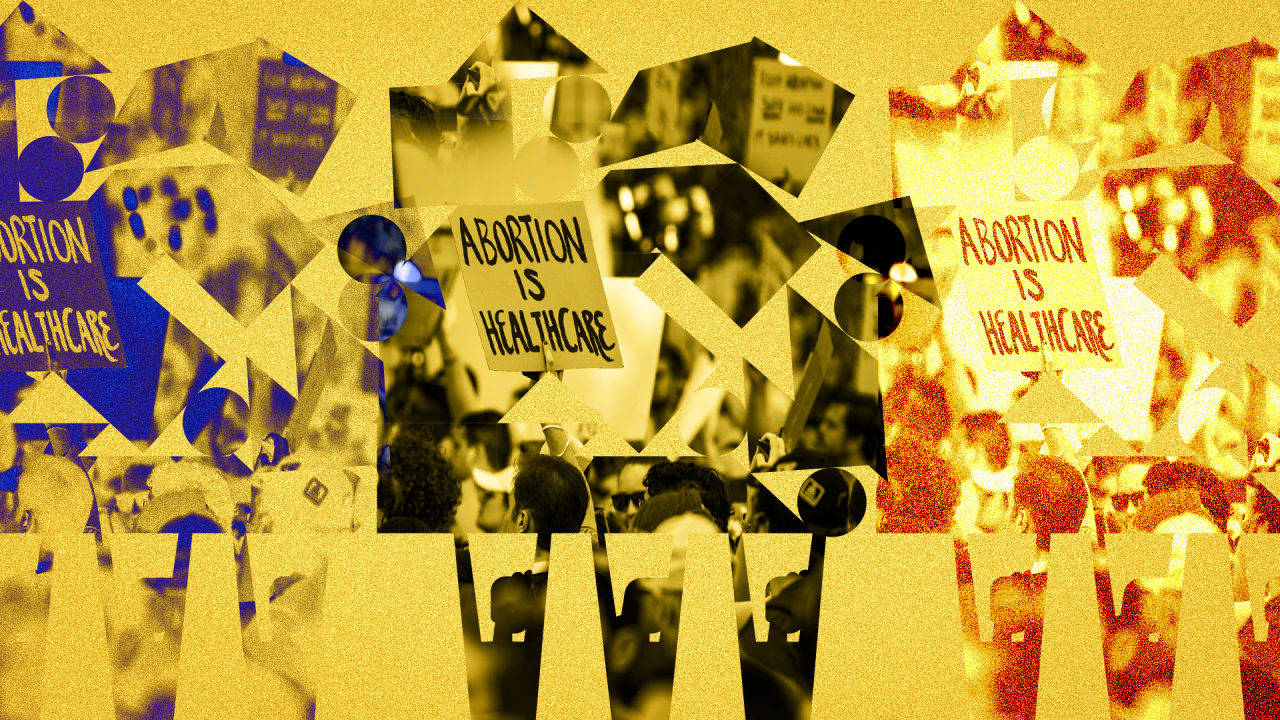[ad_1]

On Monday, a leaked draft opinion from the Supreme Court revealed a majority of conservative justices on the nation’s highest court voted to overturn a landmark ruling on reproductive rights, which for nearly 50 years upheld the constitutionality of seeking abortions across the country. The draft, reported by Politico, lodges a clear attack on the 1973 decision, calling it “egregiously wrong from the start.”
Although the court’s vote will not be final until the paper is published—and it’s unclear if revisions have been made to the February draft, or if the vote still holds—many are preparing for Roe v. Wade to be struck down in the next few months, which would then return authority on abortions to state governments. And if that moment comes, abortions would suddenly become illegal in 13 states with so-called trigger laws, or bans that take effect immediately in the event of Roe’s overturning. According to analysis from the policy group Guttmacher Institute, another 13 states have laws indicating they will move to ban abortion.
That means people in more than half of the United States could be denied abortion healthcare. People seeking abortions would, in some cases, be forced to travel hundreds of miles to reach a safe clinic in another state, or if they cannot afford it, resort to unsanctioned or risky procedures that jeopardize their health.
Such negative consequences might be why much of the U.S. supports keeping abortion above ground and out of back alleys. According to a January 2020 survey from the Pew Research Center, there were only seven states in which a majority of respondents said abortion should be illegal in all cases (Arkansas, Mississippi, Alabama, West Virginia, Louisiana, Kentucky, and Tennessee). Meanwhile, a majority in 20 states said abortion should be legal in all, or most cases.
For the other 23 states, Pew’s survey did not reveal a clear majority for or against abortion legality.
In a number of states, however, the views of residents are not mirrored by their local laws. For example:
- In Florida, 56% said abortion should be legal, but last month state governor Ron DeSantis signed a bill banning most abortions after 15 weeks, just beyond the first trimester.
- In Wisconsin, 53% said abortion should be legal, but the state’s standing legislation from 1849 has led the Center for Reproductive Rights to classify it as “hostile to abortion rights.”
- In Michigan, 54% said abortion should be legal, but a 1931 law banning most abortions may take effect once again if Roe falls.
- In Pennsylvania, Iowa, and Nebraska, where more than 50% of people support the freedom to choose, Republican politicians are currently campaigning to pass restrictive “heartbeat” bills or even trigger laws in the run-up to a likely SCOTUS decision.
While polls on abortion perspectives have given varying results, another Pew survey from August 2019 found 61% of Americans broadly believed abortion should be legal, as opposed to 38% who said it should be illegal.
Meanwhile, only 28% said Roe should be overturned, versus 70% who believed it should be left in place.
[ad_2]
Source link

